By: Hector Franco

“Tito Trinidad may be the deadliest puncher in these divisions since Ray Robinson.” – Larry Merchant
20 years ago, on May 12, 2001, at Madison Square Garden, the second half of Don King’s middleweight world championship tournament took place when Puerto Rico’s Felix “Tito” Trinidad (42-3, 35 KOs) faced off against William Joppy (40-7-2, 30 KOs) for his WBA middleweight title.
Trinidad, 28, entered the fight with a record of 39-0 with 30 knockouts, and Joppy, 30, came in with a record 32-1-1 with 24 knockouts.
The tournament would crown boxing’s first undisputed middleweight champion since Marvin Hagler.
Longtime reigning IBF middleweight champion Bernard Hopkins had taken care of business in the first bout of the tournament, winning a wide unanimous decision over Keith Holmes to unify the WBC and IBF titles.
Trinidad was coming off of the most prominent year of his career in 2000, where he moved up from welterweight to junior middleweight and unified the WBA and IBF titles scoring significant victories over David Reid and Fernando Vargas.
The bout with Vargas is regarded as one of the best in the history of the junior middleweight division and led to Trinidad being awarded Fighter of the Year honors for the year 2000. Trinidad’s father, Felix Trinidad Sr., also earned the Trainer of the Year award to put a cap on a spectacular year.
Trinidad’s move up in weight was an attempt to make history to become one of just a handful of fighters to hold titles in the welterweight and middleweight divisions.
Some of the greatest fighters in the sport’s history had held titles at welterweight and middleweight, including Ray Robinson, Ray Leonard, Thomas Hearns, and Emile Griffith.
By defeating Joppy, Trinidad would become the first fighter since Ray Leonard to win a middleweight title in his first fight at the weight class.
“My goal is to win the 160-pound middleweight crown on May 12 against William Joppy and then go on to unify the title by beating Bernard Hopkins,” Trinidad stated through a translator for an HBO preview show promoting the bout with Joppy. “I know that I’m fighting against boxers who are perhaps more powerful who may hit harder, but I’d like to tell them all, Joppy and then Hopkins, to watch out for me because I really want to win.

“I really want to knock them out, and I’m certain that when they feel my punch, they will know who Tito Trinidad is. They’re going to find out where my middleweight punch is, I guarantee it.”
During this time, Trinidad was the most popular boxer out of the island of Puerto Rico. Similar to fighters like Manny Pacquiao or Ricky Hatton, he fought with the weight of a country behind him that brought more meaning every time he stepped inside the squared circle.
In the early 2000s, the pound-for-pound list was a round-robin between Trinidad, Shane Mosley, and Roy Jones Jr.
As the longest-reigning champion in welterweight history, having made 15 title defenses holding victories over Oscar De La Hoya, Pernel Whitaker, Oba Carr, Yory Boy Campas among others, and then moving up to unify at junior middleweight, Trinidad had as a good a case as anyone for the pound-for-pound crown.
“Felix has the qualities of an idol and celebrity, but also and most importantly the qualities of a hero that merits an example to the young and all the people,” stated Trinidad’s then-attorney Jose Nicolas Medina. “ We have great champions that have been champions in one category. He is the first number one pound-for-pound in the whole sport.”
Trinidad’s opponent, Joppy, was the ultimate underdog heading into the fight. His career trajectory mirrored some of today’s fighters, such as Demetrius Andrade, as a world champion who was looking for his opportunity to prove himself against the best.
Joppy started boxing at the age of 20, the same age that Trinidad won his first world title at welterweight. He would get his first title opportunity by traveling to Japan and stopping Shinji Takehara via a ninth-round stoppage to win the WBA middleweight title.
Joppy would make two defenses before losing the title by controversial decision to the Dominican Republic’s Julio Cesar Green in August 1997. The Virginia native would get his revenge on Green a few months later in January 1998, winning a dominant unanimous decision in a rematch.
In January 1999, tragedy struck Joppy when an auto accident broke c7 vertebrae in his neck, leaving him out of the ring for most of the year.
Miraculously, Joppy would return in the summer of 1999 and would go on to make five defenses in his second reign, even scoring a seventh-round stoppage over Green in a rubber match.
For Joppy, the fight with Trinidad was his opportunity to become a household name and earn bigger paydays. More importantly, the Trinidad fight represented a chance at recognition and notoriety.
“This is my great fight,” Joppy stated during an HBO interview promoting the fight. “This is going to get me over that hump. This is going to put me on that pound-for-pound list. This is my dream come true. I know that Trinidad is the house fighter, but I’m going to shock the world.”
Having been a career-long middleweight, Joppy felt that he would be able to handle Trinidad, who spent most of his career at welterweight.
“Trinidad can not deal with me,” Joppy said during one of the final press conferences. “Him beating Vargas and David Reid, they were still babies. He’s dealing with a veteran now. Welcome to the middleweights, Trinidad.
“I’m going to show him things he’s never seen before.”
Heading into the fight with an outstanding record of 19-0 with 15 knockouts in world title fights, Trinidad didn’t lack confidence in facing Joppy.
“Well, he should go ahead and try to back me up,” said Trinidad. “And then do whatever he’s been saying he’s going to do. Once we’re in the ring, I will show him. He might want to do what he said, but whether I let him do it or not is another matter.
“Let’s see on May 12 if he can do a fraction of what he said he’s going to do.”
The stage was set in front of the pro-Puerto Rican crowd at Madison Square Garden in one of the greatest atmospheres boxing has seen.
Ring Magazine’s Editor-in-Chief Doug Fischer and former ESPN Senior Writer Dan Rafael described the atmosphere as electric and one of the best crowds for a fight that they have attended.
When Trinidad made his entrance, the crowd went into a frenzy, with loud chants of Tito reverberating throughout the arena. Trinidad basked in the roar of the crowd as a fighter who loved the adulation he received from his fans.
The fight began with Joppy taking the initiative heading straight out to Trinidad. However, this proved to be a vital mistake, as Joppy’s lack of focus on defense would prove to be his downfall.
With 48 seconds remaining in the first round, Joppy left his hands down by his waist, and Trinidad took immediate advantage by landing a quick left hook that stunned the Virginia fighter.
Another left hook and right hand followed, putting Joppy down hard on the canvas. He was able to get up to wobbly legs with the bell saving him from further punishment.
Joppy’s corner was in a panic, leaving him standing in his corner while yelling instructions. But, the middleweight champion’s resolve and high activity level kept him in the fight.
The second round was a showcase for Trinidad’s accuracy as he landed 29 out of 49 punches at a 59 percent connect rate. But Joppy kept throwing punches in an attempt to overwhelm the Puerto Rican.
Joppy’s most effective round came in the third when he threw a record 116 punches, the most ever thrown against Trinidad in a fight tracked by CompuBox.
Trinidad’s power was on full display against Joppy. But, the fight highlighted some of his often-overlooked attributes in finding and taking advantage of openings and his overall accuracy.
In the first minute of the fourth round, Trinidad caught Joppy with a left hook while his hands were down, causing him to roll over on the canvas from another knockdown.
Joppy somehow managed to survive the round, but the end seemed imminent.
In the fifth round, Trinidad landed a pair of right hands on the inside after creating space. The first right landed, and as Joppy was swaying down, Trinidad landed another brutal right hand. Joppy attempted to get up on wobbly legs forcing referee Arthur Mercante Jr. to stop the fight at the 2:25 mark.
The Puerto Rican landed an unbelievable 108 out of 191 total punches at a 57 percent rate, with 80 of those punches being power shots.
Trinidad, now holding the WBA middleweight title as a three-division champion, stood tall as arguably the best in the world. One can argue if Trinidad was indeed the greatest fighter to come out of Puerto Rico, but his popularity could not be questioned.
While fighters like Carlos Ortiz, Wilfredo Gomez, Wilfred Benitez may have fought in more revered eras, they never peaked at the zenith that Trinidad reached.
Trinidad’s run from 1999 to 2001 was a short one, but the significance of that period would be what other Puerto Rican fighters would be measured by from that point forward.
In September 2001, the run would come to an end at the hands of Bernard Hopkins in the finals of the middleweight tournament.
The pressure in which Trinidad put on his opponents could only be compared to the pressure he felt having to fight with the weight and emotions of an entire country.
For the night of May 12, 2001, at the world’s most famous arena, Felix Trinidad and Puerto Rico were at the top of the boxing world.



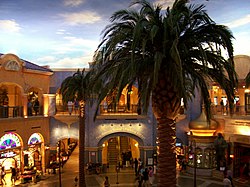


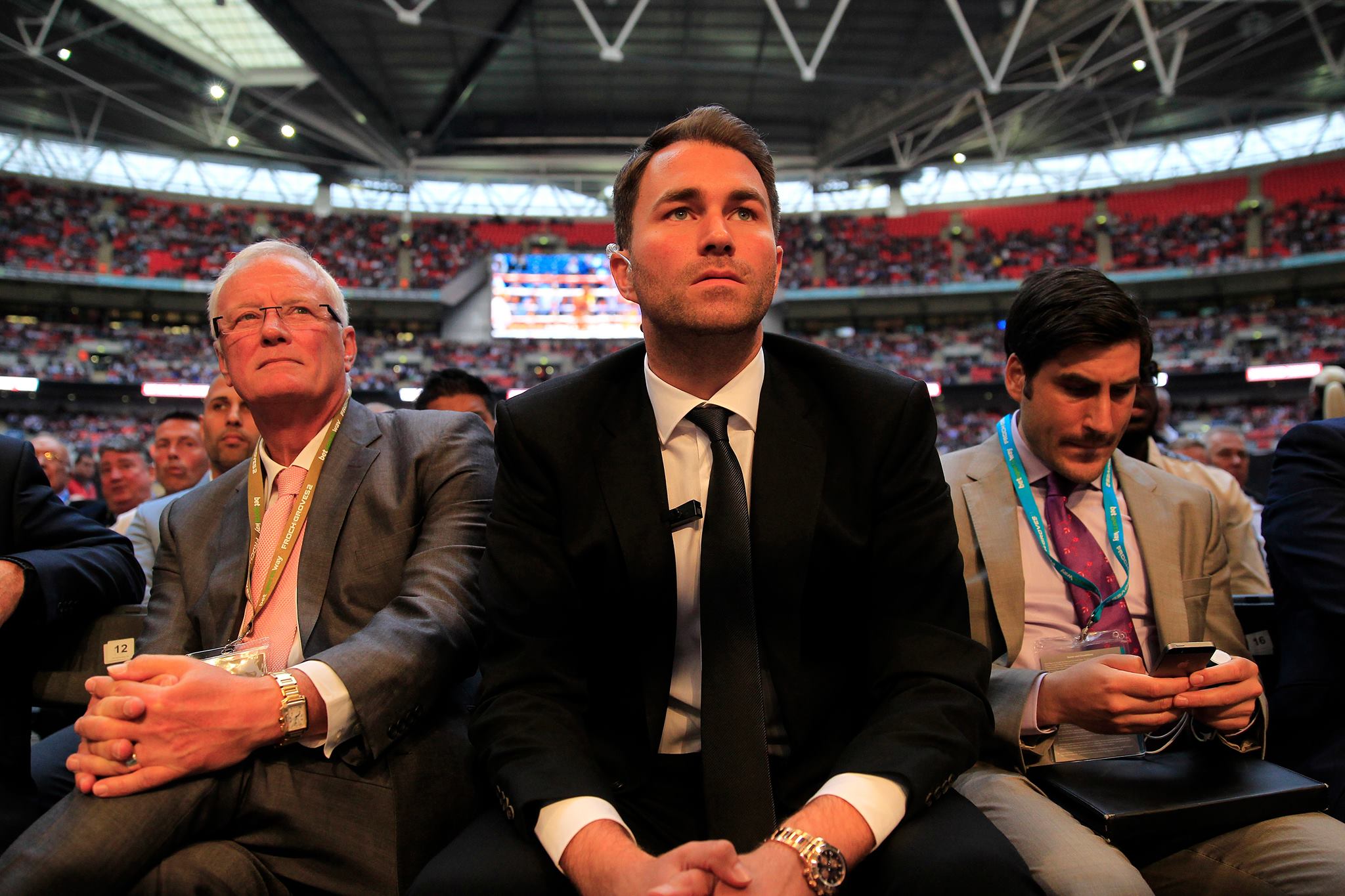
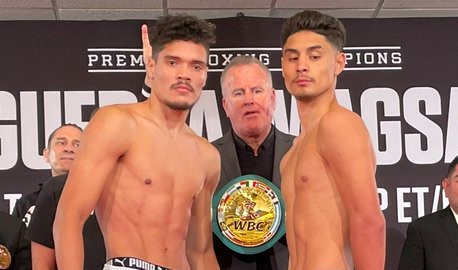
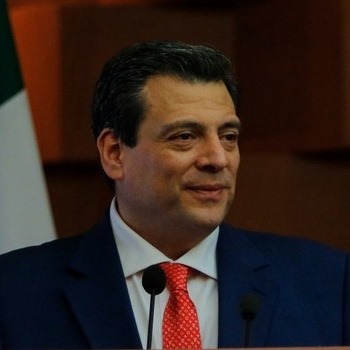







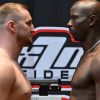
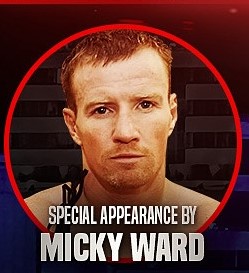

LarryFex
06/25/2024 at 1:48 am
pin up az: pin up az – pin-up casino giris
JeffreyMok
06/26/2024 at 8:52 am
https://northern-doctors.org/# mexican online pharmacies prescription drugs
Richardled
06/26/2024 at 11:56 am
mexican border pharmacies shipping to usa [url=http://northern-doctors.org/#]Mexico pharmacy that ship to usa[/url] buying prescription drugs in mexico online
JeffreyMok
06/26/2024 at 3:02 pm
https://northern-doctors.org/# mexican pharmacy
JeffreyMok
06/26/2024 at 5:56 pm
https://northern-doctors.org/# reputable mexican pharmacies online
Richardled
06/26/2024 at 7:02 pm
medicine in mexico pharmacies [url=http://northern-doctors.org/#]mexican northern doctors[/url] mexico drug stores pharmacies
JeffreyMok
06/26/2024 at 11:26 pm
https://northern-doctors.org/# mexican online pharmacies prescription drugs
JeffreyMok
06/27/2024 at 2:32 am
https://northern-doctors.org/# mexico drug stores pharmacies
Richardled
06/27/2024 at 2:43 am
mexico drug stores pharmacies [url=https://northern-doctors.org/#]northern doctors[/url] medicine in mexico pharmacies
JeffreyMok
06/27/2024 at 5:34 am
http://northern-doctors.org/# п»їbest mexican online pharmacies
JeffreyMok
06/27/2024 at 8:31 am
https://northern-doctors.org/# mexican drugstore online
Richardled
06/27/2024 at 12:03 pm
mexico drug stores pharmacies [url=https://northern-doctors.org/#]mexican pharmacy northern doctors[/url] mexican online pharmacies prescription drugs
JeffreyMok
06/27/2024 at 4:09 pm
http://northern-doctors.org/# mexican online pharmacies prescription drugs
Williamfrumn
06/27/2024 at 8:25 pm
п»їbest mexican online pharmacies: mexican pharmacy online – mexico drug stores pharmacies
JeffreyMok
06/27/2024 at 11:57 pm
https://northern-doctors.org/# mexican pharmaceuticals online
JeffreyMok
06/28/2024 at 5:11 am
https://northern-doctors.org/# purple pharmacy mexico price list
Richardled
06/28/2024 at 6:01 am
mexico pharmacies prescription drugs [url=http://northern-doctors.org/#]mexican pharmacy[/url] buying from online mexican pharmacy
JeffreyMok
06/28/2024 at 7:48 am
https://northern-doctors.org/# buying prescription drugs in mexico
Richardled
06/28/2024 at 3:02 pm
mexican mail order pharmacies [url=https://northern-doctors.org/#]Mexico pharmacy that ship to usa[/url] mexican drugstore online
JeffreyMok
06/28/2024 at 3:54 pm
https://northern-doctors.org/# pharmacies in mexico that ship to usa
JeffreyMok
06/28/2024 at 6:38 pm
https://northern-doctors.org/# buying prescription drugs in mexico online
JeffreyMok
06/28/2024 at 9:16 pm
https://northern-doctors.org/# best online pharmacies in mexico
JeffreyMok
06/28/2024 at 11:52 pm
https://northern-doctors.org/# best online pharmacies in mexico
Richardled
06/29/2024 at 12:05 am
mexico drug stores pharmacies [url=http://northern-doctors.org/#]northern doctors[/url] mexican online pharmacies prescription drugs
DonaldBiono
06/29/2024 at 5:09 am
purple pharmacy mexico price list
https://cmqpharma.online/# medicine in mexico pharmacies
buying prescription drugs in mexico online
Ronnienop
06/29/2024 at 6:19 am
medication from mexico pharmacy [url=https://cmqpharma.com/#]mexican online pharmacy[/url] mexican rx online
Ronnienop
06/29/2024 at 9:06 am
mexican pharmacy [url=https://cmqpharma.com/#]mexico pharmacy[/url] best online pharmacies in mexico
Ronnienop
06/29/2024 at 11:54 am
mexico pharmacy [url=http://cmqpharma.com/#]cmq mexican pharmacy online[/url] best online pharmacies in mexico
Ronnienop
06/29/2024 at 2:42 pm
mexican pharmaceuticals online [url=http://cmqpharma.com/#]mexican pharmacy[/url] mexican drugstore online
Ronnienop
06/29/2024 at 5:47 pm
mexican drugstore online [url=https://cmqpharma.online/#]mexican online pharmacies prescription drugs[/url] pharmacies in mexico that ship to usa
Stephenrhype
06/29/2024 at 6:01 pm
mexico drug stores pharmacies: mexican online pharmacy – best online pharmacies in mexico
Ronnienop
06/29/2024 at 8:53 pm
mexican mail order pharmacies [url=http://cmqpharma.com/#]mexico pharmacy[/url] buying prescription drugs in mexico online
Ronnienop
06/29/2024 at 11:38 pm
pharmacies in mexico that ship to usa [url=http://cmqpharma.com/#]mexican pharmacy[/url] mexico pharmacy
Ronnienop
06/30/2024 at 2:22 am
mexico pharmacies prescription drugs [url=https://cmqpharma.com/#]cmq pharma mexican pharmacy[/url] mexico drug stores pharmacies
Michaelmoolo
07/19/2024 at 10:41 pm
safe reliable canadian pharmacy: canadian pharmacy 24 com – cheapest pharmacy canada
CharlesRor
07/20/2024 at 12:22 am
best india pharmacy [url=https://indiapharmast.com/#]reputable indian online pharmacy[/url] buy medicines online in india
EdwardLoobe
07/20/2024 at 12:40 am
https://canadapharmast.online/# canadian pharmacy king reviews
Davidtoows
07/20/2024 at 6:27 am
mexican rx online: purple pharmacy mexico price list – mexico drug stores pharmacies
Michaelmoolo
07/20/2024 at 7:19 am
canadian mail order pharmacy: canada pharmacy – canadian pharmacy drugs online
Davidtoows
07/20/2024 at 11:28 am
Online medicine home delivery: mail order pharmacy india – indian pharmacies safe
EdwardLoobe
07/20/2024 at 12:53 pm
http://foruspharma.com/# mexico drug stores pharmacies
Michaelmoolo
07/20/2024 at 4:50 pm
mexican pharmaceuticals online: mexican mail order pharmacies – mexican online pharmacies prescription drugs
Davidtoows
07/20/2024 at 5:16 pm
pharmacies in mexico that ship to usa: buying prescription drugs in mexico – pharmacies in mexico that ship to usa
CharlesRor
07/20/2024 at 6:10 pm
canada pharmacy online [url=https://canadapharmast.com/#]reliable canadian pharmacy[/url] canada drugs
Davidtoows
07/20/2024 at 10:15 pm
pharmacies in mexico that ship to usa: mexican online pharmacies prescription drugs – mexican rx online
EdwardLoobe
07/20/2024 at 11:55 pm
http://foruspharma.com/# mexican online pharmacies prescription drugs
Michaelmoolo
07/21/2024 at 1:35 am
pharmacy website india: indian pharmacy online – Online medicine order
Davidtoows
07/21/2024 at 3:28 am
buying prescription drugs in mexico online: mexican pharmaceuticals online – mexican pharmaceuticals online
CharlesRor
07/21/2024 at 3:54 am
canadian pharmacy online reviews [url=https://canadapharmast.com/#]medication canadian pharmacy[/url] canadian drug pharmacy
Davidtoows
07/21/2024 at 8:17 am
reputable mexican pharmacies online: mexican rx online – buying from online mexican pharmacy
Jamesjam
07/21/2024 at 3:14 pm
amoxicillin generic brand: amoxicillin online without prescription – where can you buy amoxicillin over the counter
Thomaskef
07/21/2024 at 5:09 pm
https://clomiddelivery.pro/# where to buy generic clomid online
Myronnepay
07/21/2024 at 8:21 pm
http://amoxildelivery.pro/# amoxicillin cost australia
can you buy cheap clomid without rx [url=http://clomiddelivery.pro/#]can i buy cheap clomid without prescription[/url] how can i get clomid without insurance
Jamesjam
07/22/2024 at 4:04 am
cheap clomid now: order generic clomid pills – clomid price
Myronnepay
07/22/2024 at 5:35 am
https://ciprodelivery.pro/# cipro online no prescription in the usa
where to buy cheap clomid without rx [url=https://clomiddelivery.pro/#]where can i get cheap clomid without dr prescription[/url] where can i buy cheap clomid price
Myronnepay
07/22/2024 at 3:11 pm
http://doxycyclinedelivery.pro/# doxycycline uk cost
doxycycline 1mg [url=https://doxycyclinedelivery.pro/#]Website[/url] doxycycline pharmacy singapore
Jamesjam
07/22/2024 at 4:34 pm
doxyhexal: order doxycycline online australia – doxycycline antibiotic
Thomaskef
07/22/2024 at 5:07 pm
https://amoxildelivery.pro/# amoxicillin 500mg capsule buy online
Myronnepay
07/23/2024 at 12:29 am
http://clomiddelivery.pro/# how to get clomid without rx
can i get generic clomid without prescription [url=http://clomiddelivery.pro/#]how to buy generic clomid online[/url] can i get clomid price
Jamesjam
07/23/2024 at 5:17 am
doxycycline 100mg coupon: doxycycline over the counter australia – doxycycline 500mg tablets
Thomaskef
07/23/2024 at 8:23 am
https://ciprodelivery.pro/# buy generic ciprofloxacin
Myronnepay
07/23/2024 at 9:49 am
http://amoxildelivery.pro/# cost of amoxicillin
amoxicillin discount [url=http://amoxildelivery.pro/#]amoxicillin without a prescription[/url] ampicillin amoxicillin
Thomaskef
07/23/2024 at 3:27 pm
https://clomiddelivery.pro/# can you get generic clomid prices
Jamesjam
07/23/2024 at 5:59 pm
amoxicillin online pharmacy: order amoxicillin online uk – amoxicillin script
Myronnepay
07/23/2024 at 7:42 pm
http://amoxildelivery.pro/# can i buy amoxicillin online
how to get generic clomid [url=https://clomiddelivery.pro/#]buying clomid prices[/url] where to buy clomid no prescription
Thomaskef
07/23/2024 at 11:54 pm
https://ciprodelivery.pro/# cipro pharmacy
Myronnepay
07/24/2024 at 5:01 am
http://clomiddelivery.pro/# where can i buy cheap clomid no prescription
where buy clomid without a prescription [url=http://clomiddelivery.pro/#]cost clomid without rx[/url] can you buy clomid
Jamesjam
07/24/2024 at 6:46 am
cipro pharmacy: ciprofloxacin 500 mg tablet price – buy ciprofloxacin
Jamesjam
07/24/2024 at 7:23 pm
paxlovid price: paxlovid price – paxlovid pharmacy